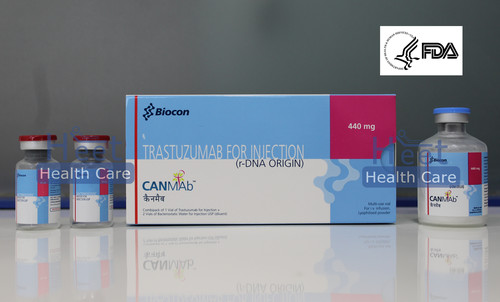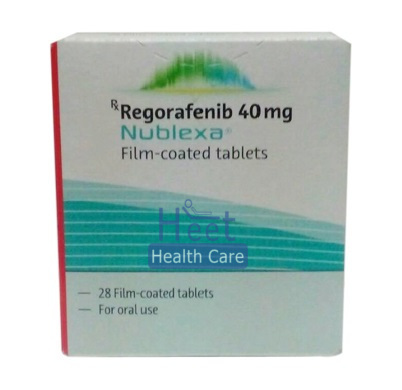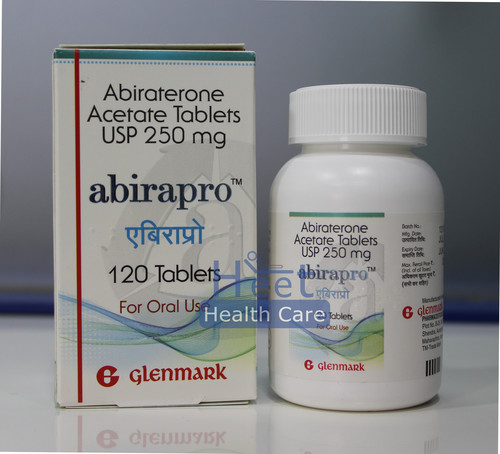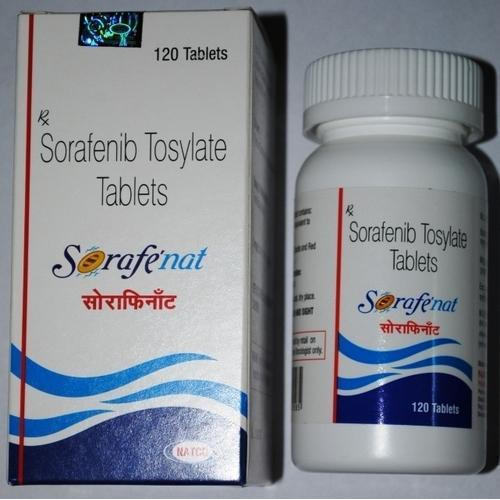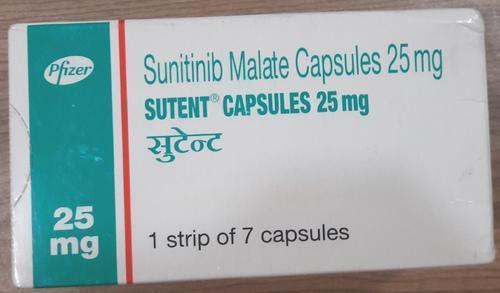
Su-tent Capsules
Product Details:
Product Description
Sunitinib, a tyrosine kinase inhibitor used to treat specific cancers, is the active component of Sunitinib Malate Capsules 25 mg. Advanced renal cell carcinoma (RCC), pancreatic neuroendocrine tumours (PNET), and gastrointestinal stromal tumours (GIST) are among the conditions for which it is given. Sunitinib functions by preventing the synthesis of particular proteins that support tumour growth and angiogenesis, or the growth of blood vessels into tumours. Sunitinib aids in the management of cancer progression and may increase survival in individuals with certain illnesses by obstructing various pathways. To manage any side effects and guarantee the best possible treatment results, regular medical monitoring is crucial. Depending on the patient's unique circumstances and therapeutic response, the dosage and length of the course may change.
The 25 mg Sunitinib Malate Capsules' features and advantages include:
Features:
1. Sunitinib, a tyrosine kinase inhibitor, is the active component in sunitinib malate capsules, which have a 25 mg dosage.
2. Multiple Indications: Sunitinib is used to treat advanced or metastatic pancreatic neuroendocrine tumours (PNETs), advanced renal cell carcinoma, and gastrointestinal stromal tumours (GISTs).
3. Tyrosine kinase inhibition: Tyrosine kinases, which are involved in tumour growth and angiogenesis (the production of blood vessels to tumours), are blocked by the drug sunitinib.
4. Precision Therapy: Sunitinib provides focused therapy that targets cancer cells selectively while sparing healthy cells.
5. Sunitinib is administered orally in the form of capsules, making it simple for patients to do so at home.
Benefits:
1. Effective Cancer Management: The treatment of GISTs, RCCs, and PNETs with sunitinib results in better patient outcomes and more durable disease control.
2. Longer Progression-Free Survival: Patients with the aforementioned cancer types have shown increased progression-free survival when receiving sunitinib treatment.
3. Slower Cancer Progression: Sunitinib reduces the development and proliferation of cancer cells by blocking tyrosine kinases.
4. Delayed Disease Progression: Sunitinib could be able to slow down the spread of advanced or metastatic cancer, improving quality of life.
5. Reduced Tumour Angiogenesis: Sunitinib restricts the blood supply to tumours by preventing the growth of blood vessels there, potentially reducing the size of the tumour.
6. Sunitinib has been demonstrated to increase overall survival rates in individuals with RCC and GISTs.
7. Sunitinib capsules can frequently be provided as an outpatient procedure, minimising the need for protracted hospital stays.
8. Research is still being conducted, and this is giving patients more alternatives for treatment by examining new combinations and uses of sunitinib.
Before beginning sunitinib Malate capsule therapy, patients must discuss potential side effects and advantages with their doctor. To manage potential side effects and achieve the greatest results, regular medical monitoring is essential. Sunitinib use requires competence, and decisions on treatment should be reached in consultation between patients and their oncologists while taking into account specific circumstances and intended outcomes. To manage side effects and maximise therapy efficacy, patients should be regularly watched and given supportive care.
Sunitinib Malate 25 mg Capsule Uses:
1. Using 25 mg Sunitinib Malate Capsules, the following conditions can be treated:
2. Sunitinib is prescribed to treat advanced or metastatic gastrointestinal stromal tumours (GISTs), a specific category of tumour that develops in the gastrointestinal tract.
3. Advanced Renal Cell Carcinoma (RCC): Sunitinib is a medication that is prescribed to treat advanced RCC, a kind of kidney cancer that has spread to other body organs.
4. Sunitinib is also used to treat Pancreatic Neuroendocrine Tumours (PNETs), a specific type of tumour that develops from neuroendocrine cells in the pancreas.
25 mg Sunitinib Malate Capsule Adverse Reactions:
While Sunitinib is generally well-tolerated, it can cause some side effects in certain individuals. Common side effects may include:
- Fatigue or Weakness
- Nausea and Vomiting
- Diarrhea or Constipation
- Abdominal Pain
- Skin Rash or Hand-Foot Syndrome (redness, swelling, and pain on the palms of the hands and soles of the feet)
- High Blood Pressure (Hypertension)
- Changes in Taste
- Loss of Appetite
- Swelling or Edema
- Headache
- Hair Color Changes
- Low Blood Counts (Anemia, Neutropenia, Thrombocytopenia)
- Elevated Liver Enzymes
- Thyroid Function Changes
- Heart Problems (e.g., heart failure)
Other Products in 'Anti Cancer Medicine' category
 |
HEET HEALTHCARE PVT. LTD.
All Rights Reserved.(Terms of Use) Developed and Managed by Infocom Network Private Limited. |

 Send Inquiry
Send Inquiry English
English Spanish
Spanish French
French German
German Italian
Italian Chinese (Simplified)
Chinese (Simplified) Japanese
Japanese Korean
Korean Arabic
Arabic Portuguese
Portuguese